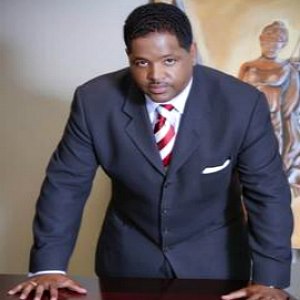
Sony BMG Music Entertainment has settled a lawsuit filed in 2005 by attorney James J. Walker of Walker and Associates, a Black-owned, Atlanta-based law firm that represents gospel artists. After almost a decade of litigation, the settlement is a major win in the battle for the rights of urban artists, the attorney said.
Walker said the settlement was concluded in early May, the day before the trial was supposed to start. He said the case has been “life-changing.” He said he has gotten feedback from all over the world in the David v. Goliath scenario—a billion-dollar company against a small, Black-owned firm.
“We felt strongly all along that this was a case we had to fight in order to protect artists and their right to choose effective legal representation and other forms of representation, including the best manager, attorney, publicist, accountant in protecting themselves as artists,” said company spokesman Kenny Walker.
Filed in 2005 in federal court in Connecticut, the lawsuit alleged that Verity Records, now called RCA Inspirational, and its president, Max Siegel, along with Verity parent company, Zomba Enterprises, and Provident Distribution “set out to deprive gospel artists of effective representation in their contract negotiations” to hack down their compensation from the use of their copyrights and intellectual property. Walker said company representatives coerced his clients into firing him and defamed his character, robbing him of income. Zomba Enterprises is now owned by Sony.
When contacted by the AFRO, Elizabeth Young, the spokeswoman for Sony Music Entertainment, said the company had no comment.
Walker said the case shines a light on the persistent exploitation of Black artists within the music industry.
“It’s endemic to urban music, in general,” he said. “There’s an undercurrent that ‘These are Black folks; they’re not that smart.’ There’s a racial undertone that no one wants to talk about…. You walk into the labels and everyone’s White and all the artists are Black.”
Industry observers agree that Walker is one of a few lawyers who successfully represent gospel’s leading artists. From 1999-2002, for example, Walker said he secured top-dollar royalty payments for nearly two dozen artists on the popular “WOW” albums. The series, launched in 1998, became a vehicle for lesser-known artists to gain exposure, revolutionizing the music genre.
Sony representatives, according to the lawsuit, employed “trickery and deceit” to convince those gospel artists—including high-profile clients like Grammy winners Hezekiah Walker, Donald Lawrence and Twinkie Clark and legendary songwriters like David Frazier and V. Michael McKay—to terminate Walker. The ploys included threats that they would not be included in future projects if they brought the assertive attorney to the negotiating table, according to the lawsuit.
Some of those artists folded, according to news reports.
“When I filed the lawsuit, five out of 10 people didn’t agree with my decision,” Walker said. “Now that the settlement has been announced, 12 out of 10 are saying, ‘Great job…I wish I would have stayed with you because I’ve been screwed… I need your help.’”
Frazier admitted that he left Walker after he tangled with the music corporation.
“James had gotten me great payments because he was aggressive,” Frazier, who wrote the 2004 gospel hit “I Need You to Survive,” told the Los Angeles Times in 2005. “But my first goal is the ministry of Christ. And as my mama said, ‘If you aren’t heard, you aren’t doing God’s work.’ So I found a new lawyer.”
Walker said when he lost about 20 existing and potential clients, he filed the suit.
While some in the gospel music industry supported Walker’s activism, others disdained the litigation as an affront to the spiritual mission of their music.
“The Bible speaks of Christians not suing one another,” Rev. Robert Lowe of Mount Moriah AME Church in New York and chairman of the Gospel Artists Progressive Movement told the LA Times. “This is Jesus’ music and it is governed by the rules of God. Our artists have not gotten our fair share, but the Bible prefers things are decided at a table rather than in the courtroom.”
In 2005, Walker predicted that despite the censure from gospel industry insiders, he would prevail and, when he did, his critics would come onboard.
“Pastors and Christian folk have this tendency to think you’re not supposed to litigate; you’re supposed to pray, scream the name of Jesus, talk in tongues and hope Jesus works it out. But there comes a time when you have to pray that God gives you the wisdom and resources to work it out [yourself],” Walker said.
